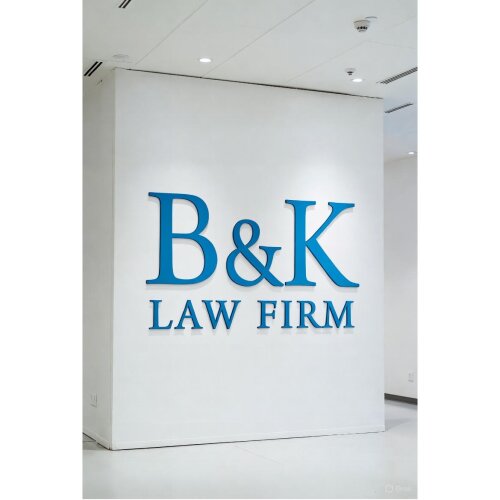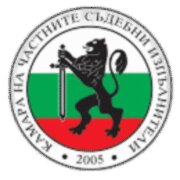Best Debt & Collection Lawyers in Pazardzhik
Share your needs with us, get contacted by law firms.
Free. Takes 2 min.
List of the best lawyers in Pazardzhik, Bulgaria
About Debt & Collection Law in Pazardzhik, Bulgaria
Debt and collection law in Pazardzhik, Bulgaria, is regulated by national Bulgarian legislation, which provides frameworks for the fair recovery of debts while protecting the legal rights of both creditors and debtors. In this region, as in the rest of Bulgaria, the law governs how debts can be pursued, the procedures for court and out-of-court collection, and the mechanisms available for resolving disputes. This legal field includes matters such as unpaid loans, overdue invoices, promissory notes, guarantees, and enforcement proceedings. Legal procedures aim to ensure ethical standards are upheld, preventing harassment and abuse during debt collection.
Why You May Need a Lawyer
There are several common situations where you might require the help of a lawyer specializing in debt and collection in Pazardzhik. If a person or business owes you money but refuses to pay, a lawyer can advise you on the best legal steps to recover your debt. Conversely, if you are being pursued for repayment and believe the claim is invalid or unfair, legal assistance can protect your rights and help you contest unjust collection efforts. Additionally, lawyers can help with drafting or reviewing contracts to prevent future disputes, facilitate negotiations, represent you in court proceedings, and offer guidance during enforcement or insolvency procedures. Having legal support is crucial when dealing with complex situations such as cross-border debts or navigating the intricacies of Bulgarian procedural law.
Local Laws Overview
In Pazardzhik, debt and collection activities are subject to several key laws:
- The Bulgarian Obligations and Contracts Act, which sets the framework for contractual relations, including obligations to repay debts.
- The Bulgarian Civil Procedure Code, which regulates court proceedings for both voluntary and enforced collection of debts.
- The Private Bailiff Act and the work of state-licensed bailiffs, who are authorized to enforce court decisions on debt collection.
- The Consumer Protection Act, which provides additional safeguards to individuals against unfair collection practices.
- Local ordinances in Pazardzhik may influence court jurisdictions and specific administrative processes related to filings and notifications.
Enforcement of unpaid debts can involve multiple steps, including sending formal notices, filing a claim in the Pazardzhik District Court, and, if successful, utilizing bailiffs for the seizure or sale of assets. Debtors have rights to appeal, seek debt restructuring, or declare insolvency in certain situations.
Frequently Asked Questions
What are the typical steps in the debt collection process in Pazardzhik?
Collection often starts informally, with written reminders and negotiation. If payment is not made, the creditor may initiate formal legal proceedings, leading to a court order and possible enforcement by bailiffs if required.
Can a creditor contact me directly or use collection agencies?
Yes, creditors may contact you directly or use licensed collection agencies, but they must follow ethical standards and cannot use threats, harassment, or public shaming.
What options do I have if I cannot pay my debts?
Debtors can try to negotiate with creditors for payment plans or settlement. In certain cases, formal insolvency processes allow for legal debt restructuring.
How can I dispute a debt I believe is invalid?
If you believe a claim is invalid or incorrect, you should respond to the notice and provide evidence supporting your position. If the matter proceeds to court, you have the right to defend against the claim.
What happens if the court grants a collection order?
If the court rules in favor of the creditor, the judgment can be enforced by state or private bailiffs who may seize assets, freeze bank accounts, or garnish wages until the debt is repaid.
Are there statutes of limitation on debt recovery in Bulgaria?
Yes, most debt claims are subject to a statutory limitation period, generally five years for contractual obligations, after which collection through the court system may be barred if the debtor raises this as a defense.
What rights do debtors have during the collection process?
Debtors have the right to be treated fairly and respectfully, to receive accurate information about the debt, and to dispute or appeal collection actions through the court system.
Must all debts be collected through court proceedings?
No, many debts are settled or collected through negotiation and voluntary payment. Court proceedings are used when these efforts fail.
Can debts owed to foreign creditors be collected in Pazardzhik?
Yes, subject to applicable international treaties and Bulgarian law. Cross-border debts often require additional legal steps, such as the recognition of foreign judgments.
Is it possible to agree on alternative repayment arrangements?
Yes, creditors and debtors can voluntarily agree to new repayment schedules, settlements, or debt restructuring at any stage before or during legal proceedings.
Additional Resources
People seeking legal advice or support in debt and collection matters in Pazardzhik may find the following useful:
- Pazardzhik District Court - for information on court procedures and filing claims
- Ministry of Justice of the Republic of Bulgaria - for national legal frameworks and updates
- Chamber of Private Bailiffs - for guidance on enforcement procedures
- Consumer Protection Commission - for complaints about unfair collection practices
- Local legal aid offices and non-governmental organizations providing assistance to individuals in debt
Next Steps
If you are facing a debt or collection issue in Pazardzhik, Bulgaria, the first step is to gather all relevant documents including contracts, payment records, and correspondence. Consider seeking early legal advice to understand your rights and obligations. You may contact a licensed attorney who specializes in debt and collection law or reach out to local legal aid services for initial consultation if you have limited resources. Acting promptly and informedly will provide you with more options for resolving your situation, whether you are pursuing the recovery of a debt or defending yourself against a collection claim.
Lawzana helps you find the best lawyers and law firms in Pazardzhik through a curated and pre-screened list of qualified legal professionals. Our platform offers rankings and detailed profiles of attorneys and law firms, allowing you to compare based on practice areas, including Debt & Collection, experience, and client feedback.
Each profile includes a description of the firm's areas of practice, client reviews, team members and partners, year of establishment, spoken languages, office locations, contact information, social media presence, and any published articles or resources. Most firms on our platform speak English and are experienced in both local and international legal matters.
Get a quote from top-rated law firms in Pazardzhik, Bulgaria — quickly, securely, and without unnecessary hassle.
Disclaimer:
The information provided on this page is for general informational purposes only and does not constitute legal advice. While we strive to ensure the accuracy and relevance of the content, legal information may change over time, and interpretations of the law can vary. You should always consult with a qualified legal professional for advice specific to your situation.
We disclaim all liability for actions taken or not taken based on the content of this page. If you believe any information is incorrect or outdated, please contact us, and we will review and update it where appropriate.









